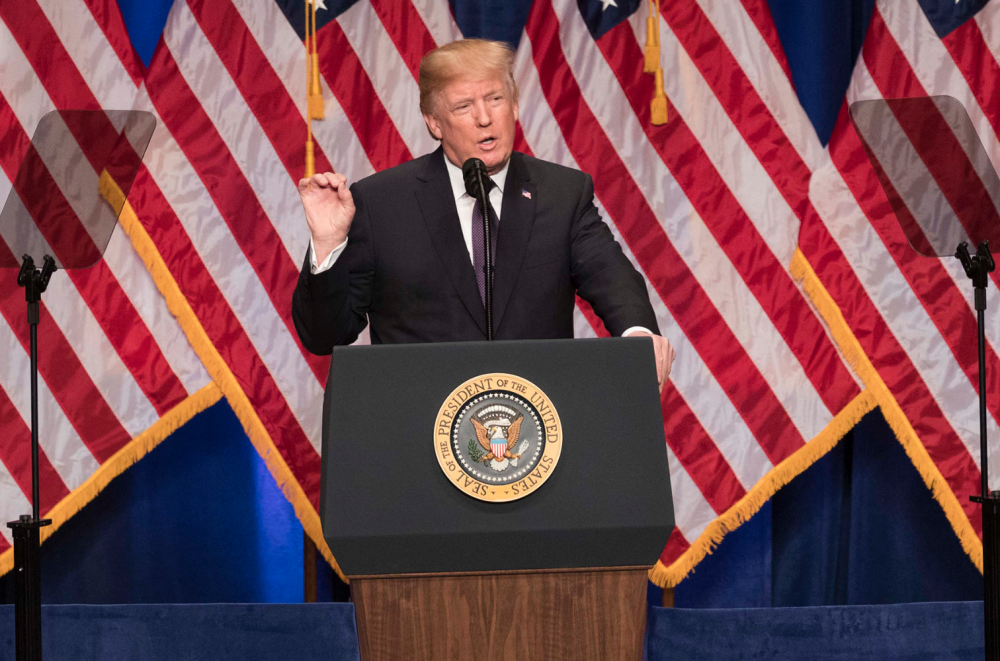Today i read the article “Ross: U.S. will not forgo global leadership, but will change the current trade structure”, written by Brett Fortnam and published on World Trade Online, you can read the full article below, and this what i think about:
“On the one hand I am looking forward to the negative reactions. On the other hand, what alternatives does the US have? It can be run in the United States that will recycle the surplus into US assets. I do feel the EU leaders do not get it because they have been more protectionist in the past. I’m sorry for freaking Europeans, I really hope US corporations understand, we are at Dunkirk beach now.
Trump and his guys, Wilbur Ross and Bob Lighthizer are saying the right things at Davos. The Europeans are convinced that they are free traders, but the EU market is protected against the U.S. and the European government are involved in industrial policy than the U.S. government. Trump is correct on this one.”
Ross: U.S. will not forgo global leadership, but will change the current trade structure

BLOG
Ross: U.S. will not forgo global leadership, but will change the current trade structure
Alberto Forchielli25 Gennaio 20180
Commerce Secretary Wilbur Ross had a clear message for the globalists gathered at the World Economic Forum in Davos, Switzerland, on Wednesday: the U.S. will lead an overhaul of the global trade structure, but it will not accept the status quo or empty promises from its trading partners.
Ross, during a panel discussion that also featured industry representatives and the director-general of the World Trade Organization, defended the Trump administration’s trade policy, including its recent safeguard actions on washing machines and solar panels, pending actions on global steel overcapacity, the Office of the U.S. Trade Representative’s Section 301 investigation into Chinese intellectual property practices, and the preference for bilateral over multilateral deals.
Trump’s trade policy, Ross contended, is not an abrogation of leadership, but rather a change of direction that U.S. trading partners are welcome to follow.
“We don’t intend to abrogate leadership, but leadership is different from being a sucker and being a patsy,” Ross said. “We would like to be the leader in making the world trade system more fair and more equitable to all of the participants. It’s not a lack of leadership, it’s not a lack of willingness to lead. The fact that we have some issues with the present system is different from the idea of whether we’re prepared to take leadership. Now you may not like the direction of it, but our president is not as much of a follower as he is a leader.”
Ross objected to the “protectionist” label that critics of the Trump administration have attached to U.S. trade actions and rebutted the idea that China could pick up the mantle and be a leader on free trade policy.
“The Chinese have for quite a little while been superb at free trade rhetoric and even more superb at highly protectionist behavior,” Ross said. “But I think you have to separate the language from the activities. Every time the U.S. does anything to deal with a problem, we’re called protectionist. But I’d [ask] the panelists: Who do you think the least protectionist country in the world is if it’s not the U.S.?”
None of the other panelists — World Trade Organization Director-General Roberto Azevêdo, BusinessEurope President Emma Marcegaglia, Cargill CEO David MacLennan and UK Standard Chartered Bank CEO Bill Winters — raised their hands.
Ross said the U.S. has the lowest trade barriers of any country and charged that trade without any barriers whatsoever is a pipe dream. “Before we get into sticks and stones about free trade we ought to first talk about is there really free trade or is it a unicorn in the garden,” he said.
He then proceeded to defend the “sticks and stones” the U.S. is using to deal with what it sees as cheaters in the global marketplace.
Ross would not directly respond to a question on what the U.S. would do if the WTO found that its safeguard actions were a violation of WTO rules, however. “The fact that they may get a favorable decision doesn’t mean that it’s a correct decision,” he said. “But in any event there’s been no decision yet, so I think it’s a bit too early to assume that the safeguards will be knocked out.”
He argued that “conventional trade actions” such as antidumping and countervailing duties have proven insufficient to deal with systemic cheating, citing washing machine imports to the U.S. as an example. In the Section 201 investigation into imports of large residential machines that begun last year, the Office of the U.S. Trade Representative said Samsung and LG evaded duties by repeatedly moving production facilities to different countries.
“The problem with conventional trade actions … is it’s Whac-A-Mole,” Ross said. “It’s what happened with the washing machines, for example — you put a tariff on a machine coming out of this country and all of a sudden it’s coming out of another country and then another country and then another country. It’s the same game, it’s the same subsidization, it’s the same dumping.”
The WTO was not set up to deal with large-scale transshipment, Ross said.
The same issue is evident in the steel sector, Ross said, citing the yet-to-be released Section 232 report on the national security implications of steel imports. The report was submitted to the White House on Jan. 11 and the president must decide whether to act on its recommendations by mid-April.
“If you look at where steel is now coming from — I don’t want to name individual countries; you’ll see them in the report — they’re countries that don’t even have steel-making capacity that are shipping a lot of steel into the U.S. right now,” he said. “Think about the implications of that. It’s just another way to get the subsidized steel in.”
Ross said dialogue with other countries on steel overcapacity has been proven unable to address what he called deliberate policy decisions made by the Chinese government to oversupply the global steel market.
“In terms of steel, there was put together the Global Steel Forum some 18 months ago,” he said. “It has made zero difference to the capacity situation. It has not even been able to get up-to-date and accurate information from all the participants about their own capacity. So anybody who thinks that just a few words of condescension is going to change this is just simply wrong.”
To illustrate his stance that Beijing is willing to make promises to reduce overcapacity without intending to follow through, Ross described a graph in his office that measures China’s steel capacity since the early 2000s. The graph, Ross said, is littered with notes on when Beijing acknowledged the issue of overcapacity and promised to do something about it.
“And the only thing that didn’t change was the upward slope of the overcapacity. It’s what I said before: The Chinese and many other countries are superb at talking free trade and acting protectionist and our country has done a terrible job of convincing people that we really are the least protectionist and unfortunately we have trade deficits to show for it.”
Ross also appeared to defend USTR’s Section 301 investigation into Chinese intellectual property practices, saying the U.S. must defend against Beijing’s goal of becoming the leading exporter of higher technologies by 2025. He called China’s goal “a direct threat that’s being implemented by the technology transfers, by the disrespect of intellectual property rights, by commercial espionage, by all kinds of very bad things.”
Azevêdo, however,warned that repeated unilateral actions could lead to a “trade war.”
“The risk is always present,” he said. “You don’t start a trade war often, deliberately; it’s just actions that take us there.”
The WTO director-general warned against countries taking unilateral action because, he said, doing so leads other countries to retaliate. “What we have to avoid is unilateral action, is you believing that you can fix everything and that you’re going to disregard everything and do what you want to do [because] others will react. And once you being to have that kind of dynamic, it’s difficult to reverse it,” he said.
On the prospect of a trade war, BusinessEurope President Emma Marcegaglia said it was important that the EU and U.S. remain united in their approach to trade policy. Otherwise, she said, China will be in a position to set global standards.
But Ross, earlier on Wednesday, told reporters that “trade wars are fought every single day,”adding that “unfortunately, every single day there are various parties trying to violate the rules, and trying to take unfair advantage of things … the difference is that U.S. troops are now coming to the rampart.”
Article written by Brett Fortnam and published on World Trade Online
Share



















Lascia un commento